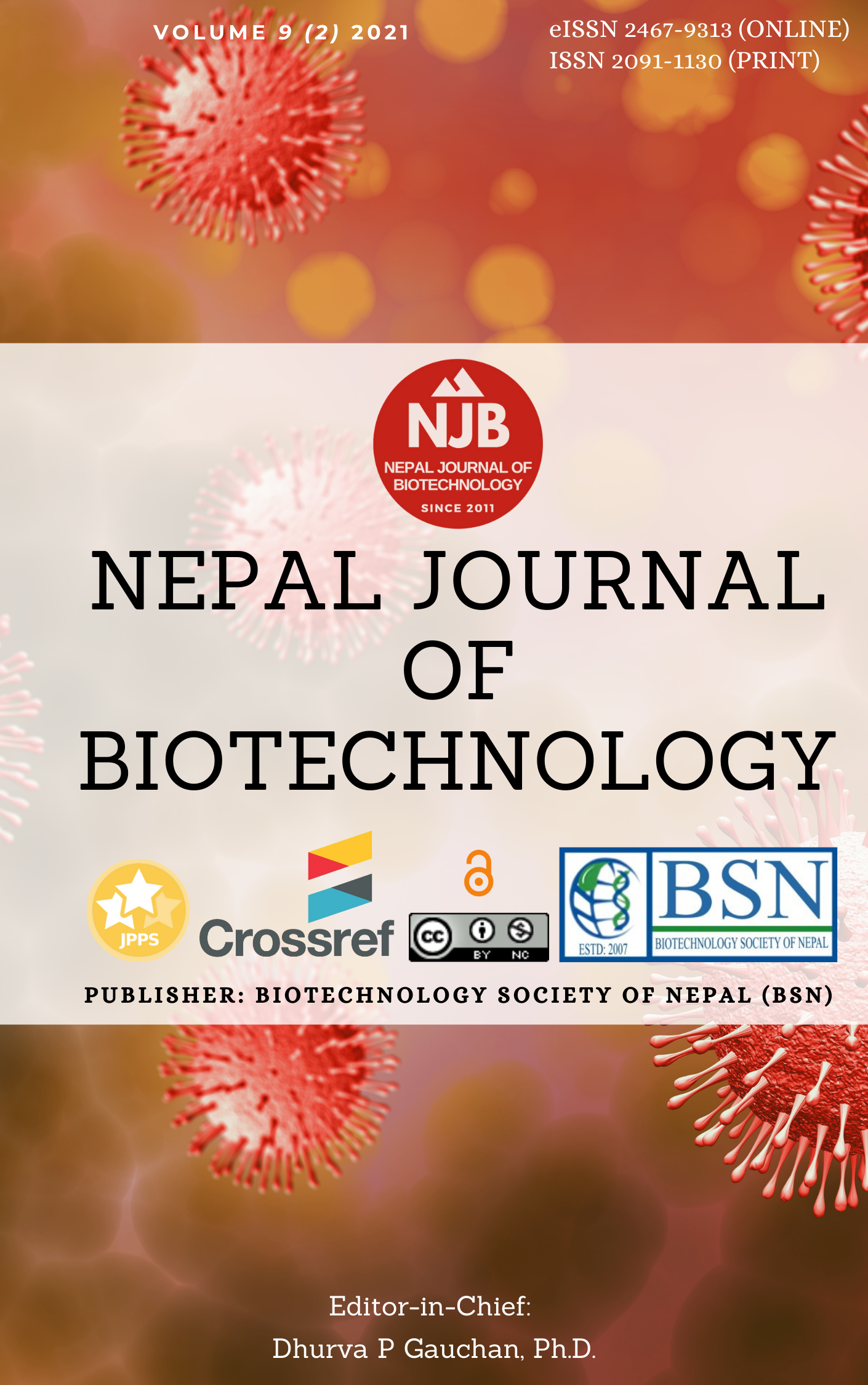Simple method devised for rapid isolation and identification of Vibrio cholerae from water resources of Sunsari District, Nepal
Keywords:
Cholera, Lab diagnosis, Sunsari, TCBS, Vibrio cholerae, WaterAbstract
Cholera is a gastrointestinal disease caused by pathogenic strain of Vibrio cholerae, the disease clinically manifested by rice-water diarrhea, nausea and vomiting. This study aimed to study the incidence of Vibrio species and employ simple method for rapid detection of Vibrio cholerae from water samples of Sunsari, Nepal. Identification of V. cholerae through biochemical tests requires extensive labor and costs. In resource limited laboratories, isolation and identification of V. cholerae often becomes difficult. Therefore, this study also aimed for selecting scope of this methodology as a scientific outcome for rapid isolation and identification of Vibrio cholerae. A total of 100 water samples were collected from Sunsari district in which 25 samples were collected from sewage, 25 from pond, 25 from tap and 25 from tube well. The samples of collected water were sent to the microbiology laboratory of Central Campus of Technology maintained in ice cold box and were enriched in Alkaline Peptone water and selectively isolated from TCBS agar and NA agar without NaCl. Pathogens were isolated and identified by conventional microbiological techniques. Out of 100 water samples collected, sucrose fermenting Vibrio species were isolated only from 16 water samples. Further the selective isolation of V. cholerae from nutrient agar without NaCl isolated 6 isolates from sewage samples and 3 isolates from pond samples. The distribution of Vibrio cholera in the water sample was found to be 9%, distribution of V. alginolyticus was found to be 4% and distribution of V. fluvialis was found to be 3%. In this study, non-sucrose fermenting Vibrio species were not isolated from the water samples. However, sucrose fermenting Vibrio species was obtained with yellow pigmentation in TCBS agar medium. The yellow pigmented colonies of Vibrio isolates recovered from TCBS and even from Nutrient Agar devoid of sodium chloride provided sufficient evidence of V. cholerae after series of other biochemical tests. This study concludes that yellow colonies (sucrose-fermenting) of Vibrio from TCBS agar medium that can grow on nutrient agar without added NaCl and which exhibit a positive oxidase reaction can be confidently identified as presumptive V. cholerae. In resource-constrained environments, this simple method can reduce the labor cost, chemicals and time-consuming procedure of performing multiple biochemical and molecular assays for identification.
Downloads
Downloads
Published
How to Cite
Issue
Section
License
Copyright (c) 2021 Biotechnology Society of Nepal

This work is licensed under a Creative Commons Attribution-NonCommercial 4.0 International License.
Copyright Notice:
The manuscript submitted to NJB must be an original contribution, not previously published and should not be under consideration for publication elsewhere. When the manuscript is accepted for publication, the authors agree to automatically transfer the copyright of the article to the publisher. It should grant permission to any third party, in advance and in perpetuity, the right to use, reproduce or disseminate your article, according to the NJB copyright and license agreement.
Authors transfer copyright to the publisher as part of a journal publishing agreement but have the rights to: Share their article for Personal Use, Internal Institutional Use and Scholarly Sharing purposes, with the NJB applies the Creative Commons Attribution-NonCommercial CC BY-NC license to all the works we publish after Jun 2020 (Before it was CC BY-NC-ND). Under this license, authors agree to make articles legally available for reuse, without permission or fees, for virtually any non-commercial purpose. Anyone may remix, adapt, and build upon your work non-commercially, and although their new works must also acknowledge you and be non-commercial, they don’t have to license their derivative works on the same terms. More details on CC BY-NC refer to its Licence Deed and Legal Code.






